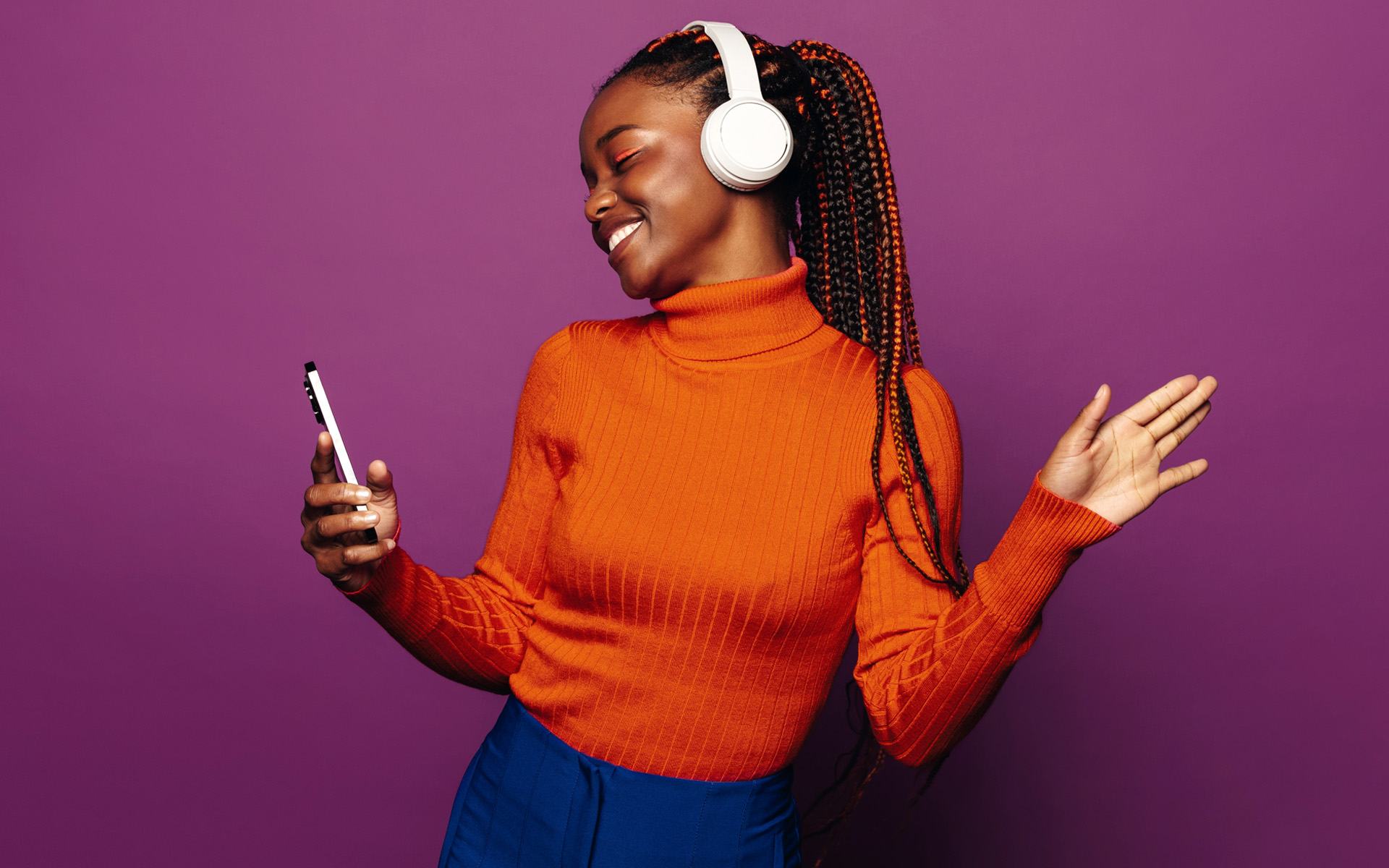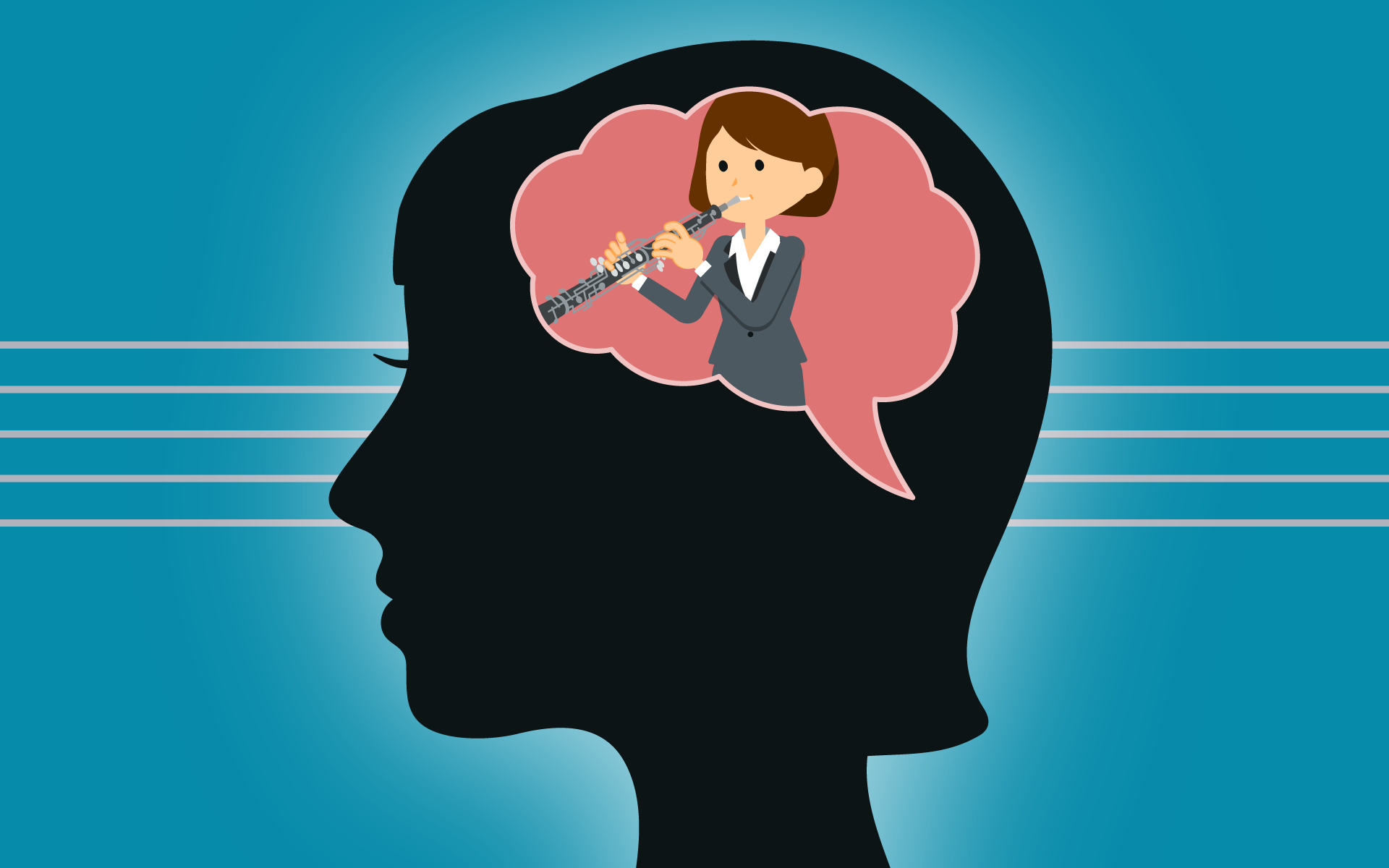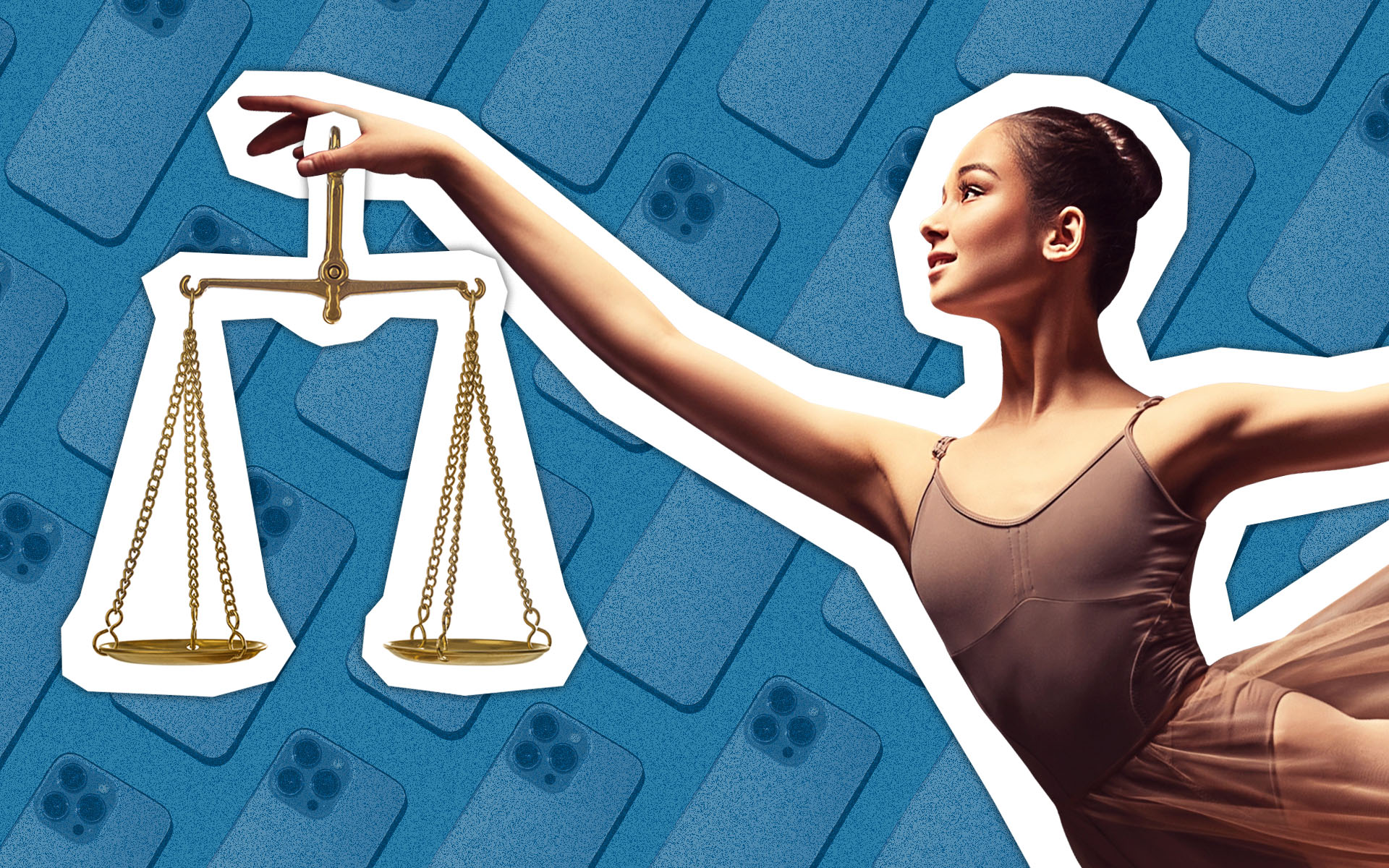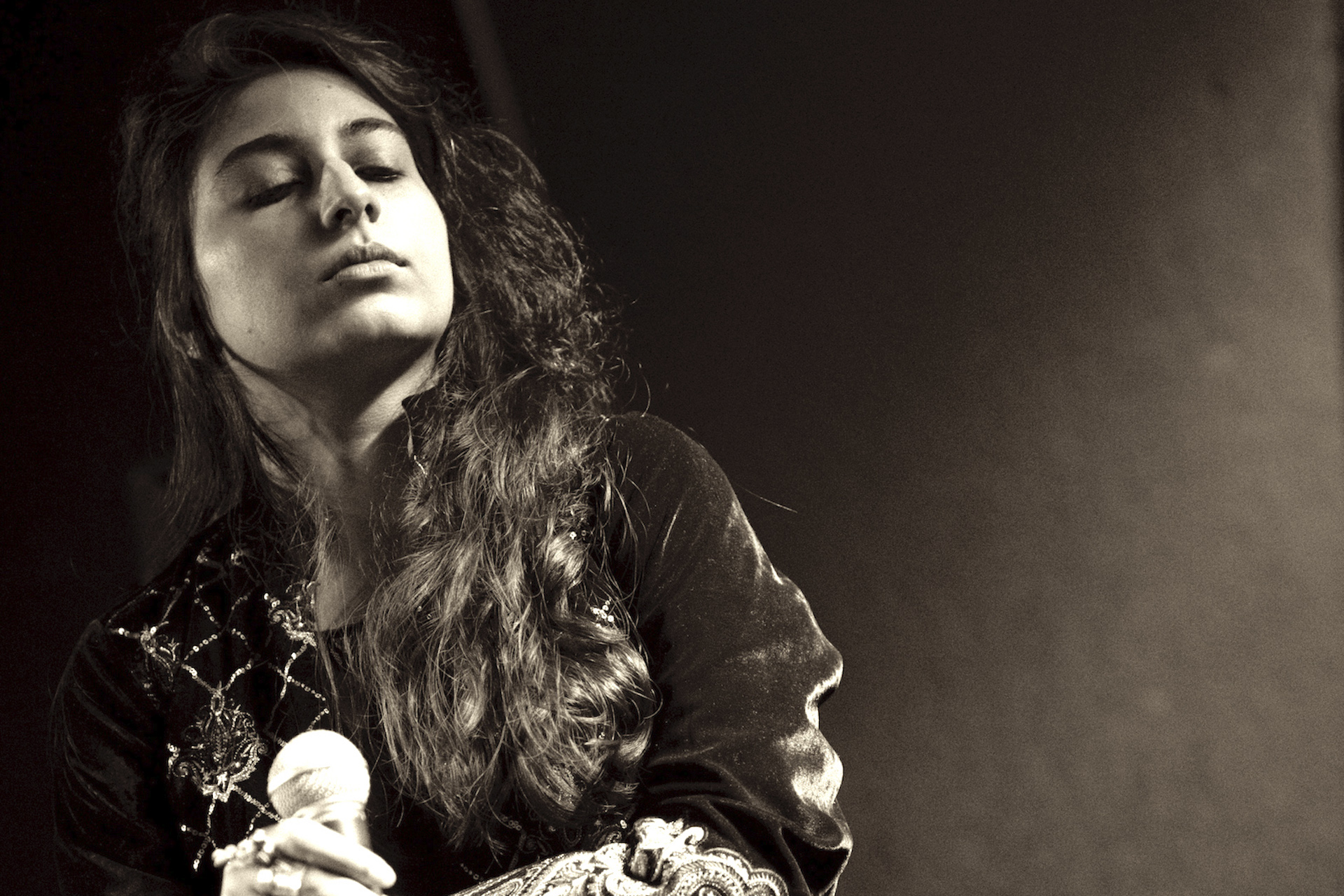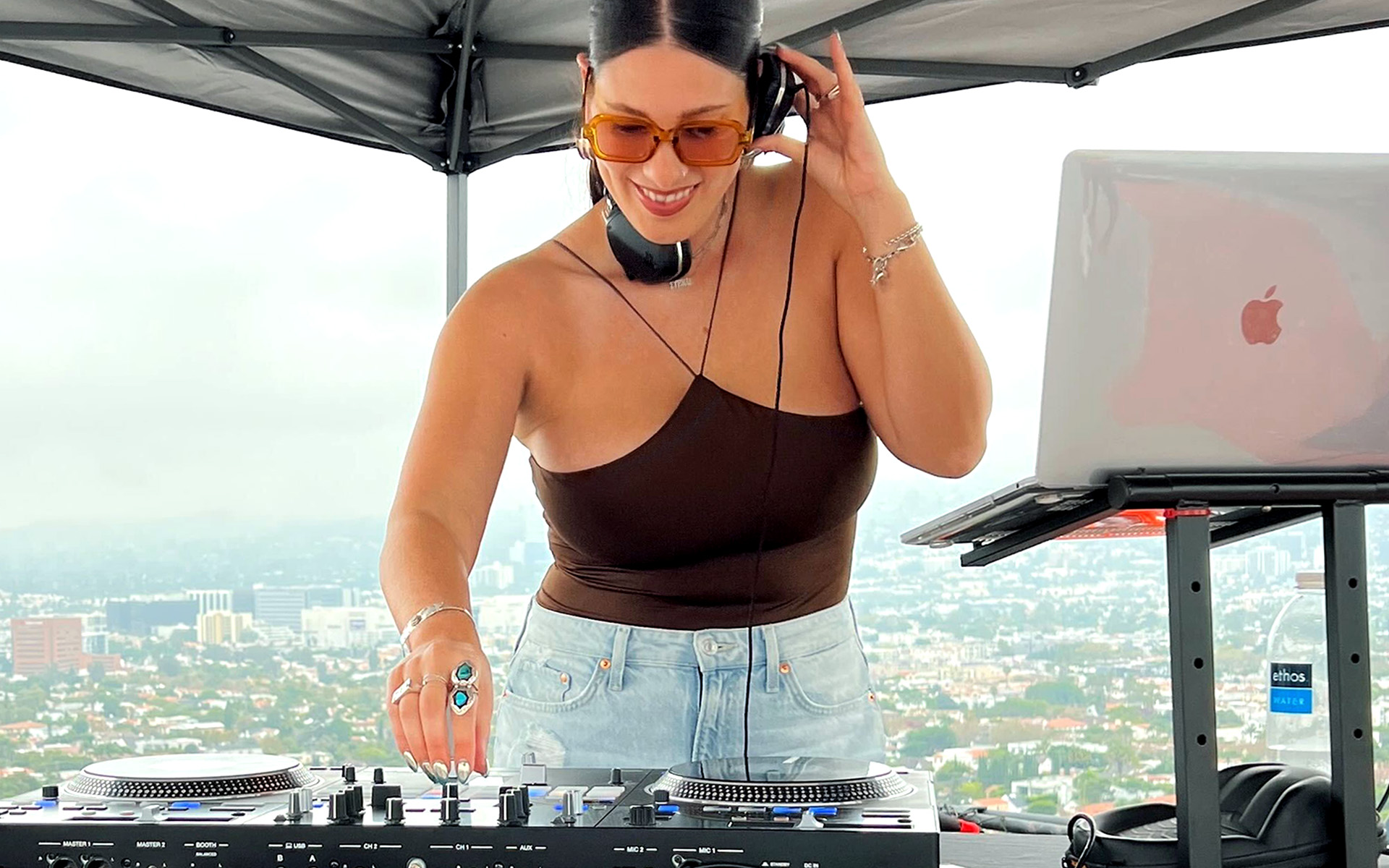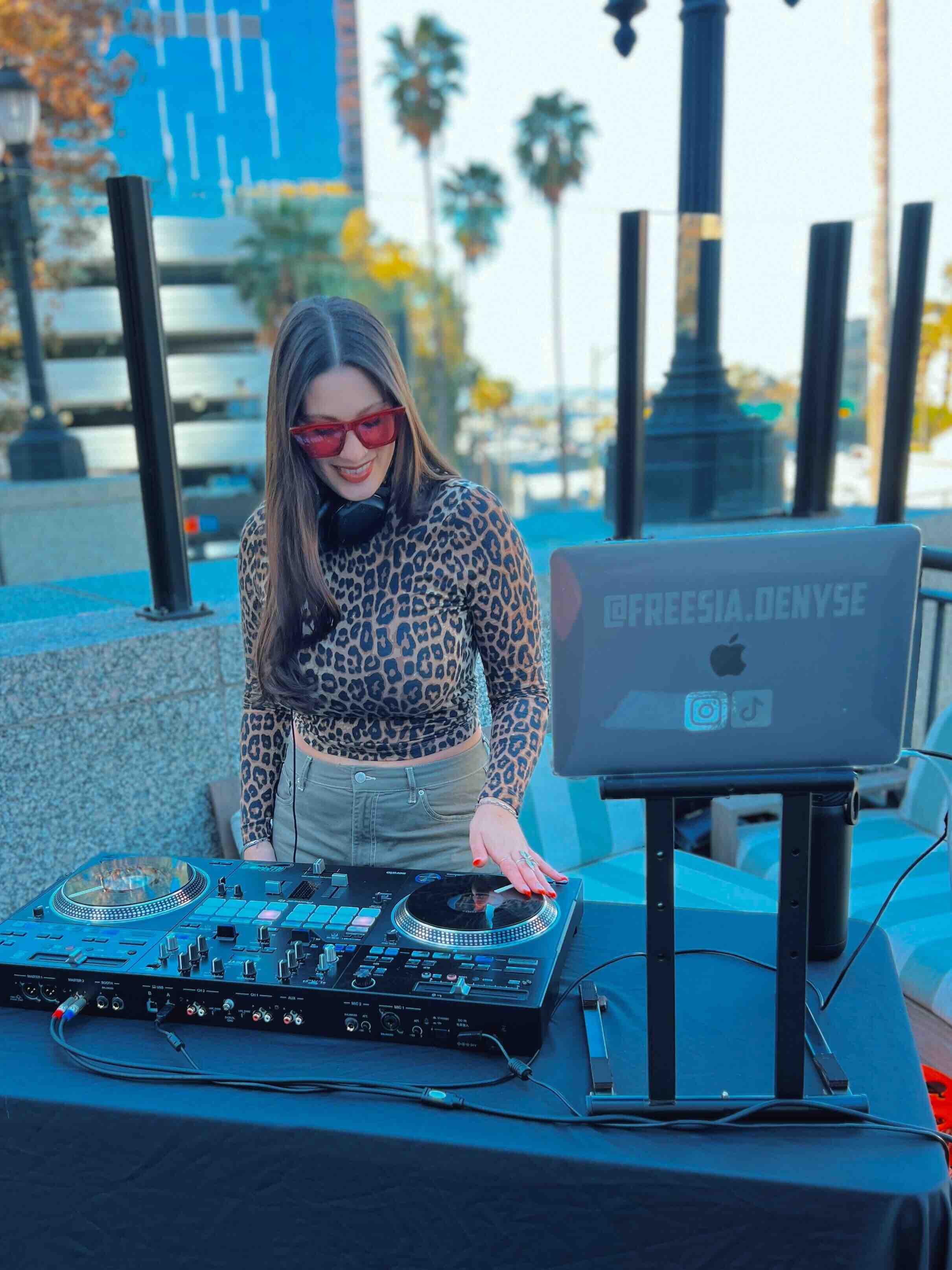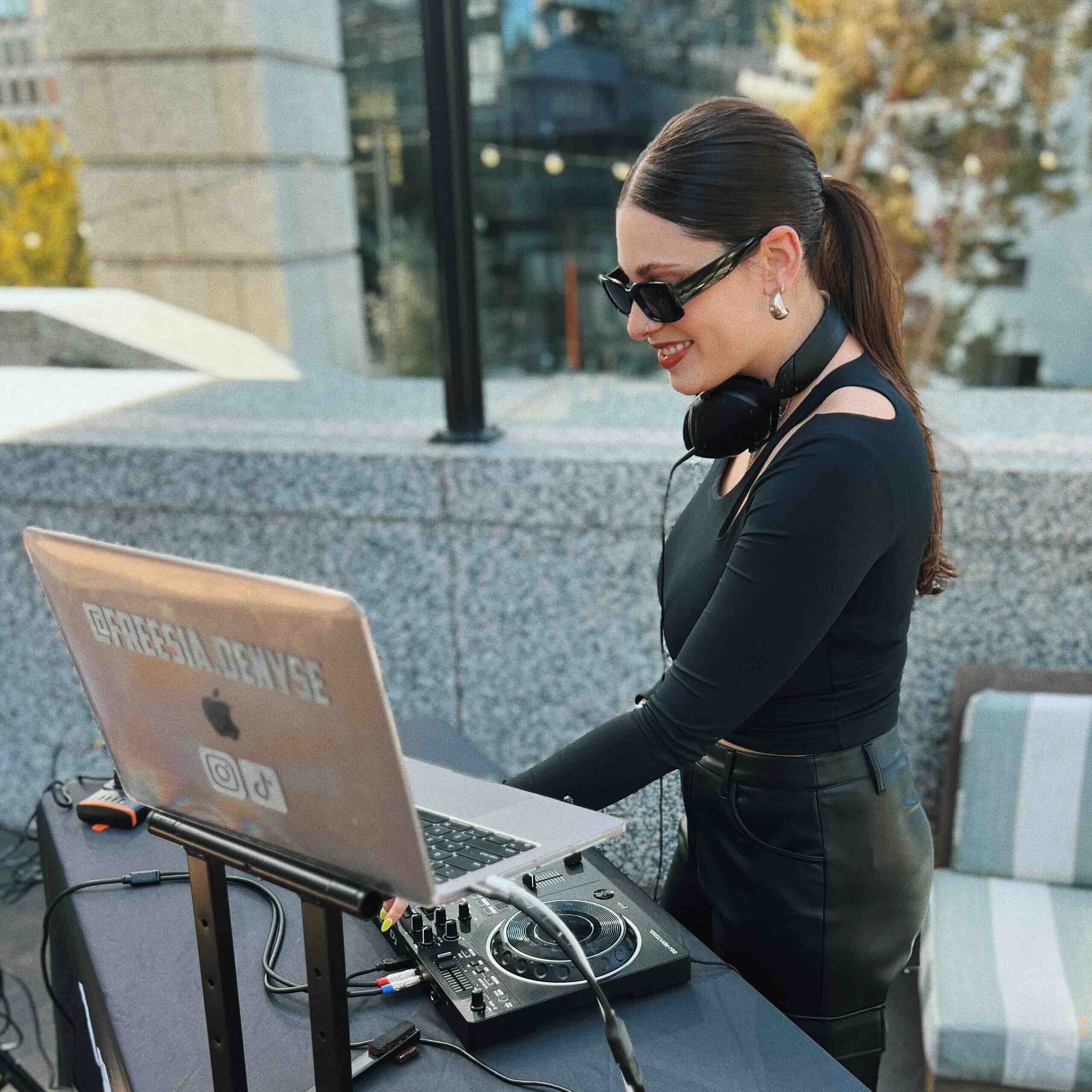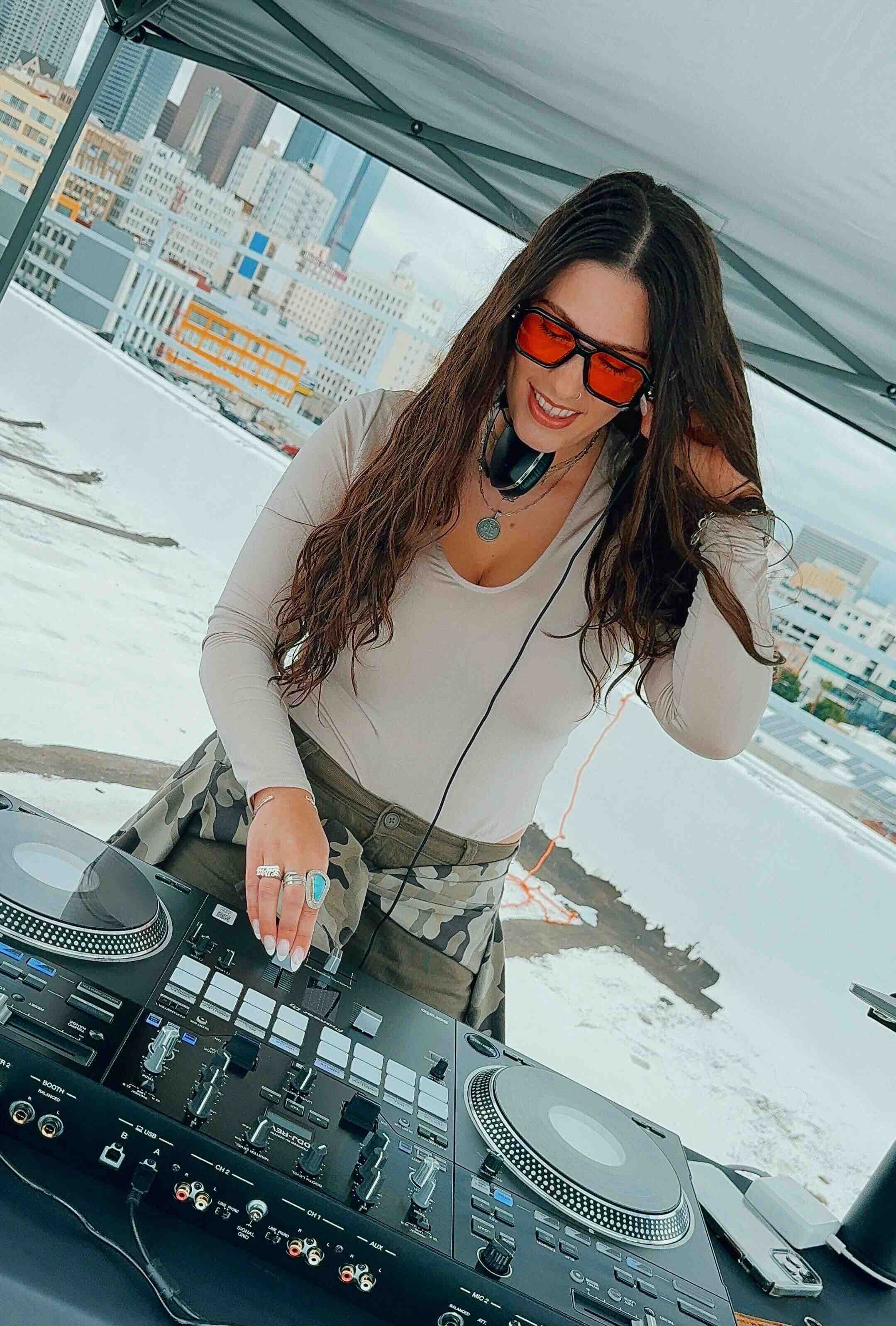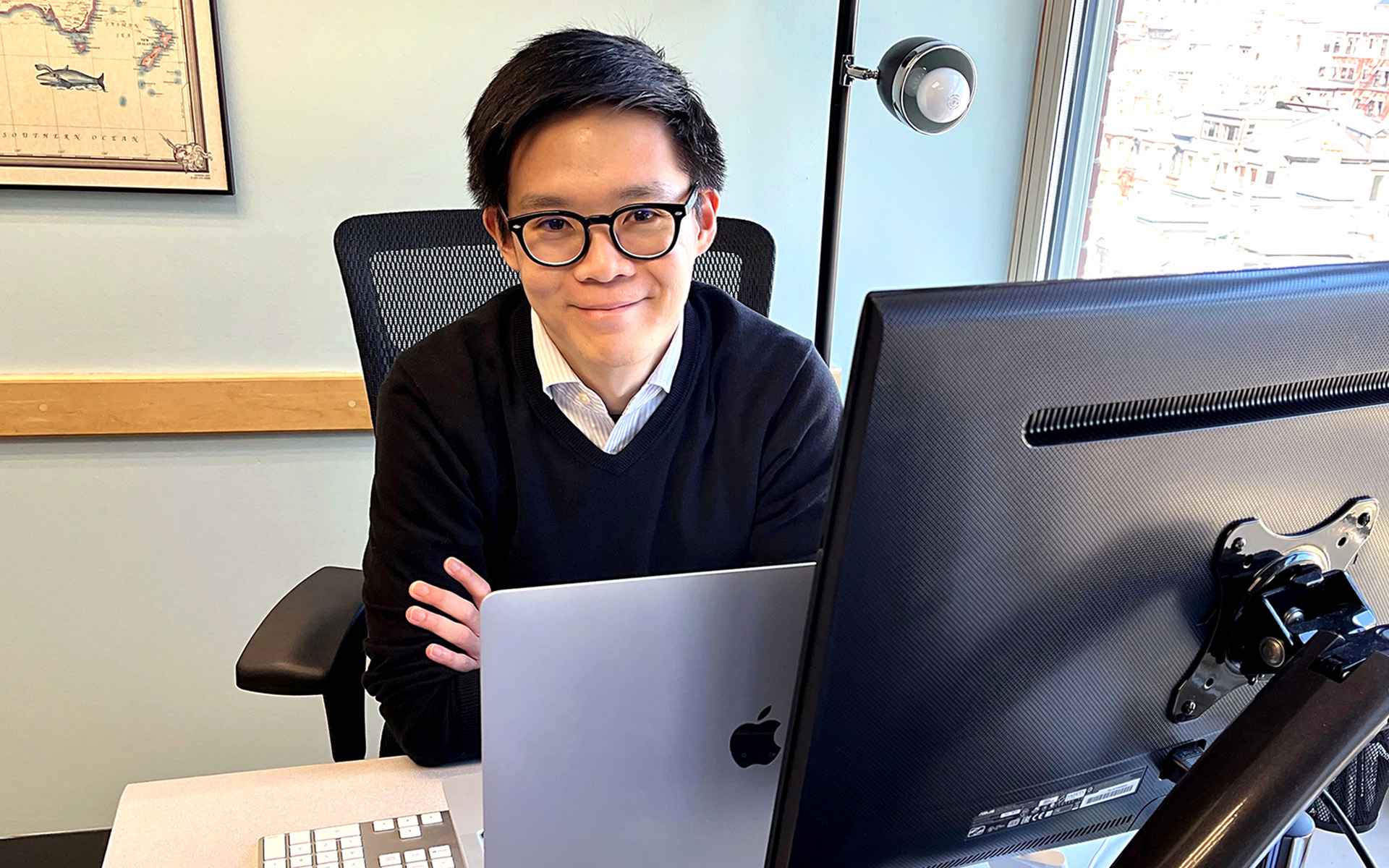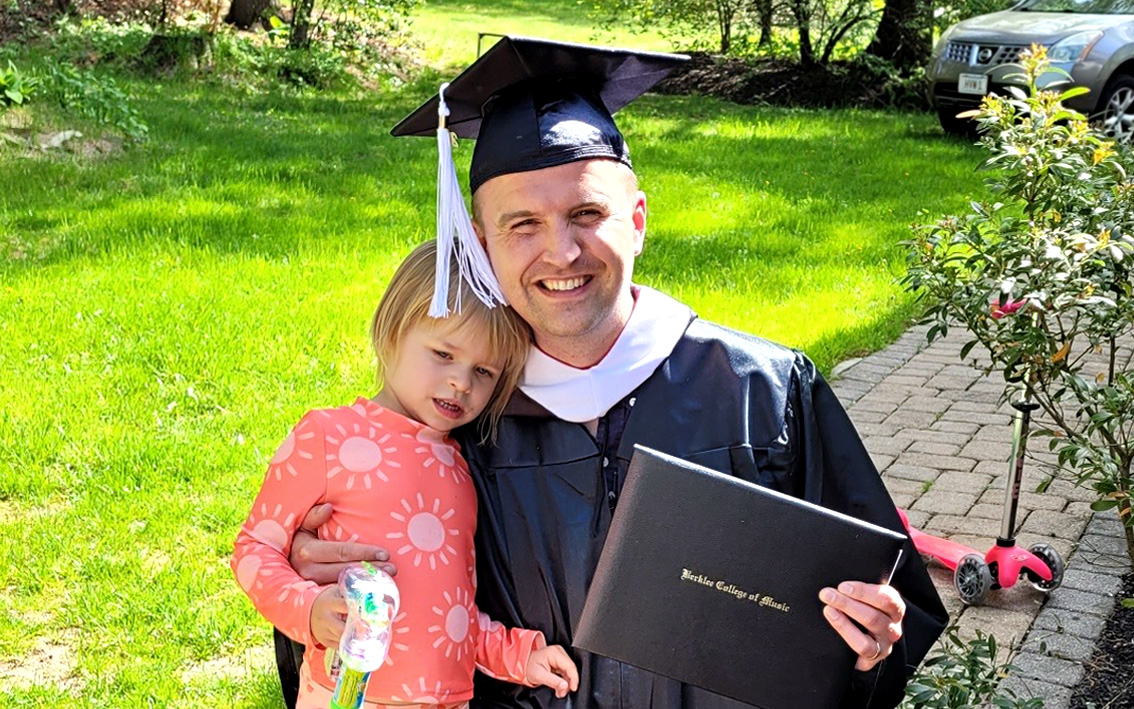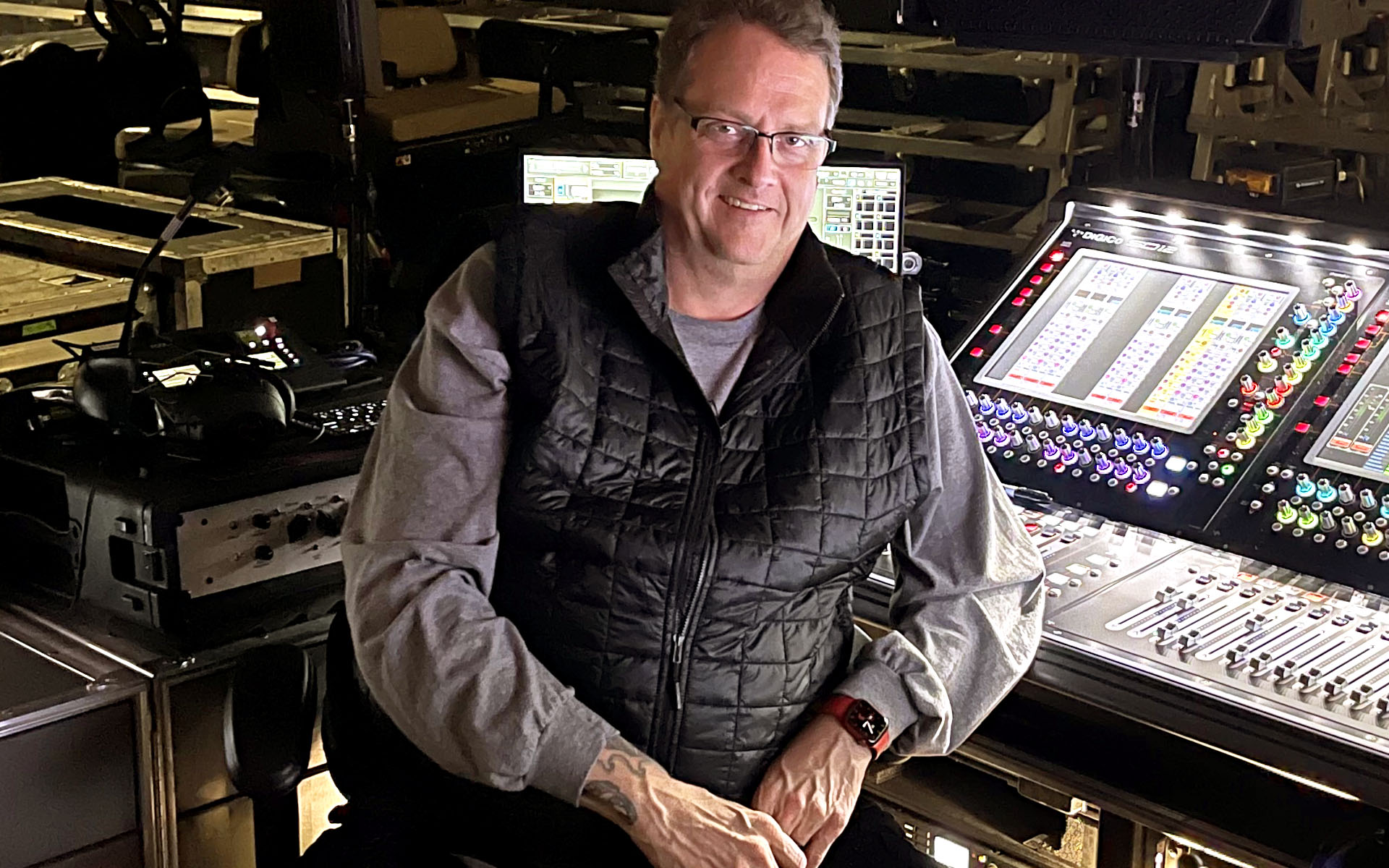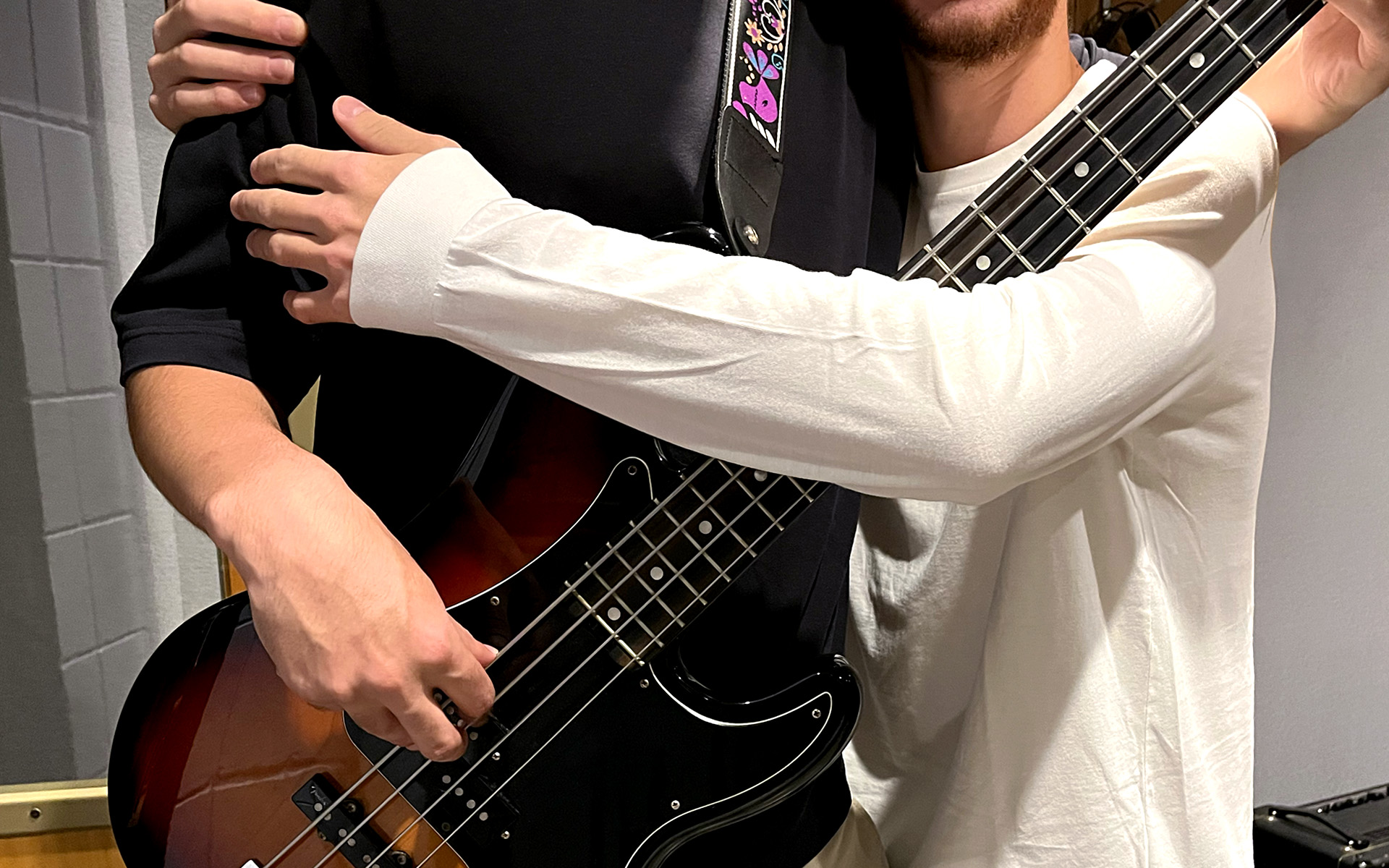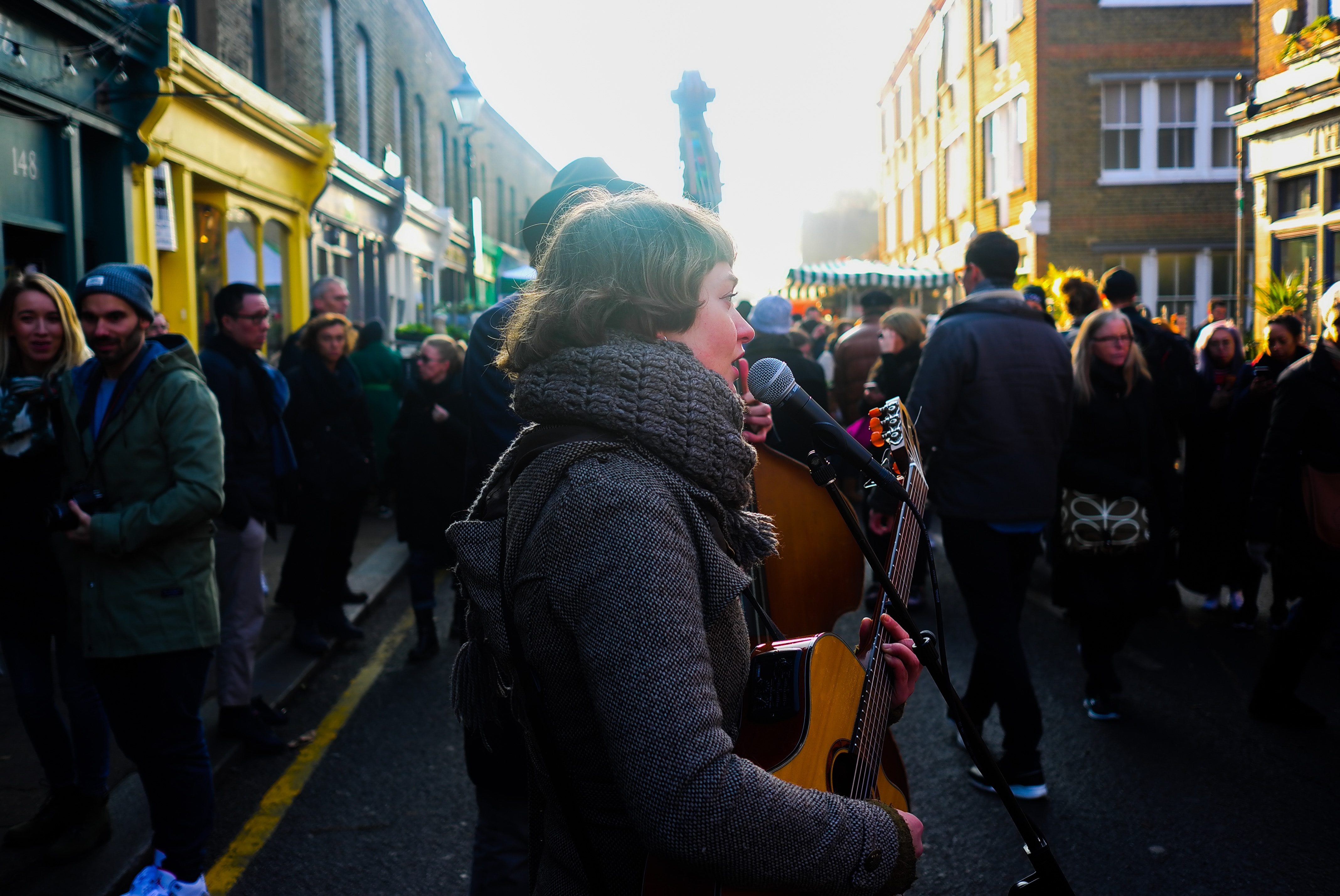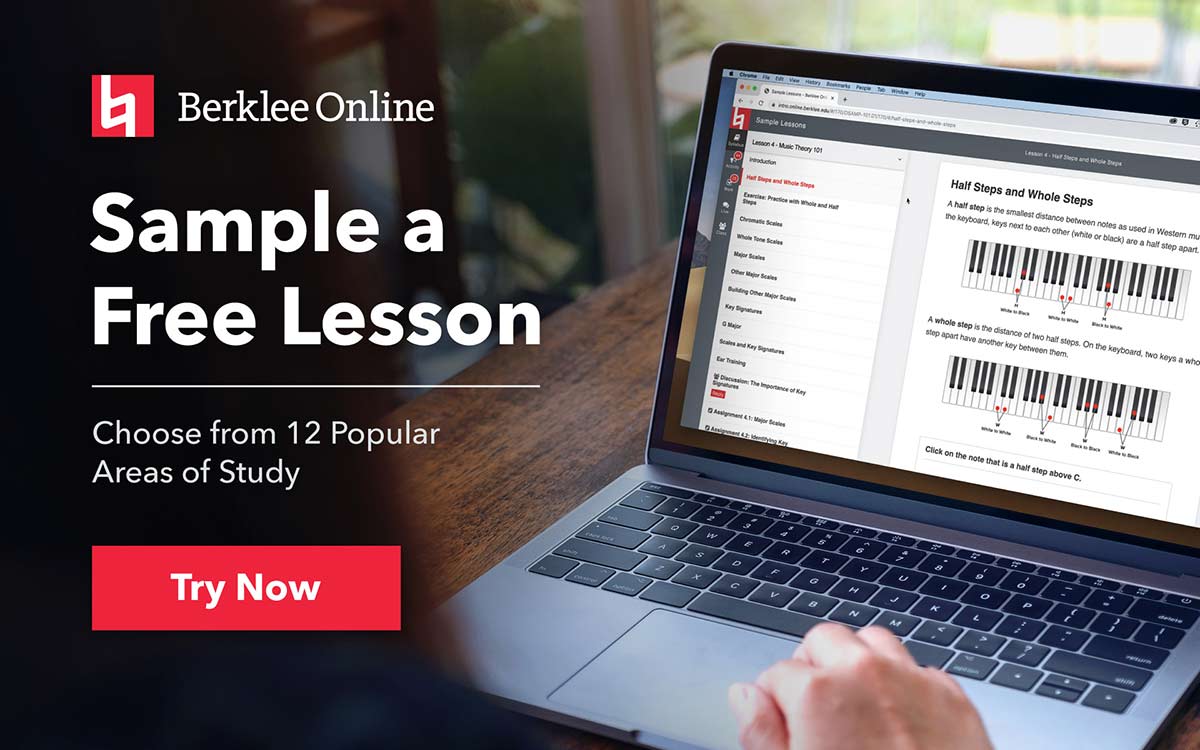Photo by Sam Harper | @fusedx
To be a DJ, you need to be able to read a room, determine a crowd’s needs, and even direct them to where they need to go emotionally through the music. Freesia Denyse does all of these things as a DJ and also as an Academic Advisor at Berklee Online.
“As an Advisor, my role is really being able to empathize and take what I’m hearing in the news and reading on social media, and assume that my students are being hit with this as well,” she says. “I go into conversations with students with a certain heightened level of awareness that this person might really be in it right now and I need to give them care and compassion.”
When Freesia is not advising Berklee Online students, this same care and compassion goes into her love for curating and sharing music as a DJ around the LA music scene. She has thriving TikTok and Instagram accounts, where she posts mashups of her favorite artists, which is all part of her business strategy. Her most popular mashup of “Soldier” by Destiny’s Child and “FTCU” by Nicki Minaj has more than 1.1 million views on TikTok.
@freesia.denyse Soldier by Destiny’s Child (2004) meets FTCU by Nick Minaj (2023)
♬ original sound – FREESIA
“I want people to capture my vibe so they see the energy when I’m making the mashup,” says Freesia. “They see my familiarity with the songs and the energy that I have when I’m playing those songs. This is all strategic because it’s about brand marketing. So when I’m networking with people in LA and they ask me, ‘What kind of music do you DJ? What are your sets like?’ I can say, ‘Well, here’s a video of me doing a mashup with this Sade and Beyoncé, or an Erykah Badu and a Aaliyah song, and that’s my style, and you can check it out here at this link.’”
Freesia grew up in Minneapolis, which greatly influenced her taste in music, in a city that was home of Prince and played a big role in the national hip-hop scene. She sees DJing as a source of community education and also a method of facilitating underrepresented music.
“Growing up in the heart of Minneapolis and going to a public high school, I was continuously exposed to hip-hop and soul music,” says Freesia. “There’s just something about being able to sing along to lyrics by Al Green, Aretha Franklin, and Anita Baker. Growing up in that environment, I just developed this passion for music.”
After moving to LA in early 2022, Freesia landed a monthly gig DJing for a rooftop R&B Yoga class, where more people started learning about her work, following her on social media, checking out her mashups, and booking her for events. By May 2024, she was booking weekly gigs.
STUDY MUSIC BUSINESS AT BERKLEE ONLINE
“It always feels good when my mixes are resonating with the audience, and it’s always the best outcome when I make new connections after a DJ set,” says Freesia. “Every time I DJ, it connects me to a new opportunity and that’s the biggest compliment: getting booked again through the same venue or through somebody that was in the audience and was impacted by my set in a positive way.”
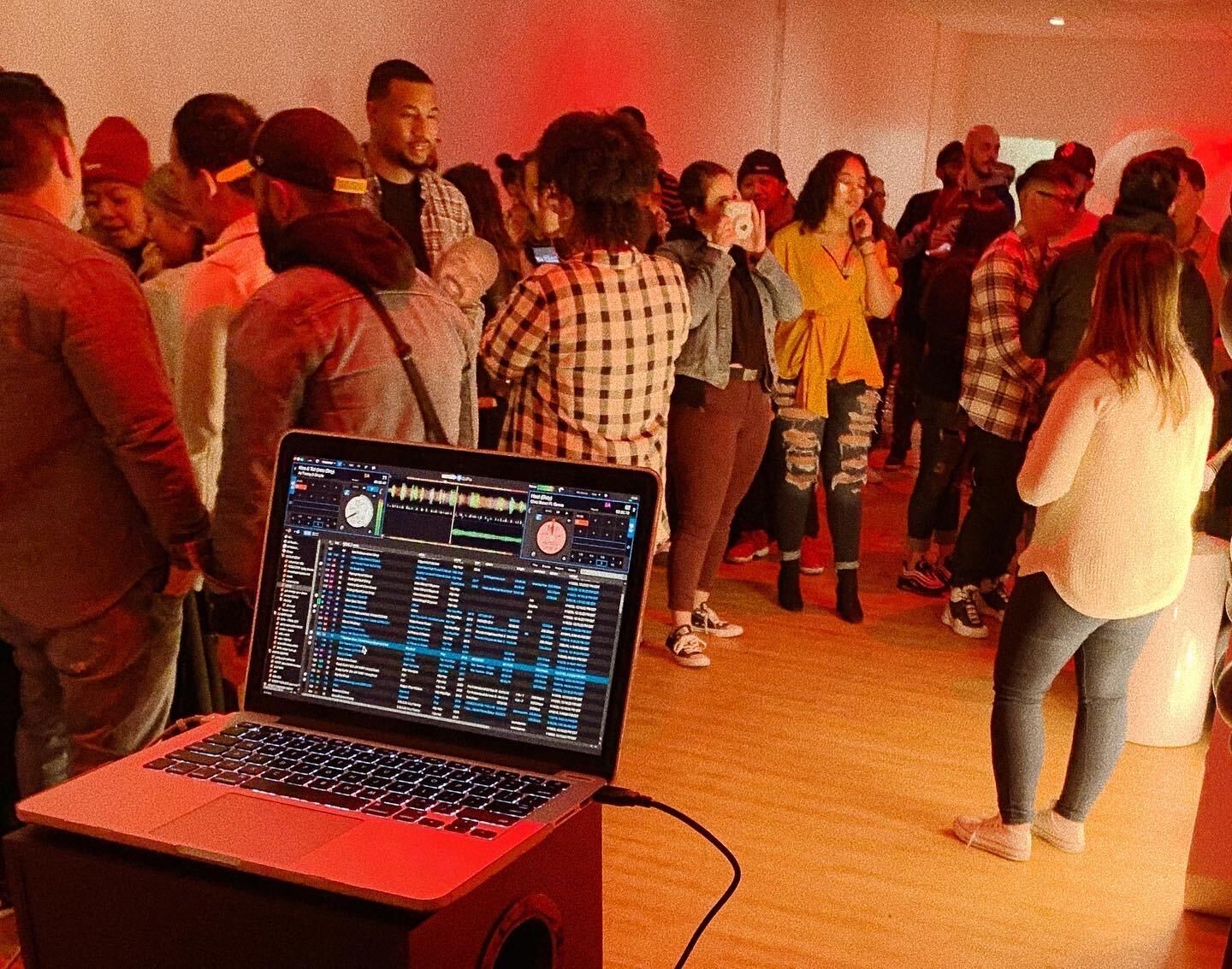
If you’re looking to start DJing, Freesia has some tips to help you get started:
Invest in the Tools and Software
If you’re looking to get started as a DJ, first you need to buy yourself some basic equipment. Freesia uses the DJ software Serato, a Pioneer DDJ-REV7, and a MacBook Pro to organize her music. She says it’s also good to have a small set of speakers for practicing at home. Though you may decide to invest in large event speakers eventually, you don’t necessarily need them when you first start DJing. Most importantly, she recommends purchasing a quality set of headphones (Freesia uses V-moda headphones). Not only will this help if you live with other people, but it’s good practice for beat matching.
Freesia also recommends purchasing cases to ensure your gear is protected and arrives at your gig safely.
“When you’re DJing, you’re making a huge investment in a lot of nice equipment and you want to protect it,” she says. “So make sure you have cases for everything, a case for your headphones, a case for your controller. If I do bring my professional event speakers, I have a case for that. I have a case for the stand. Make sure everything is protected because you want that equipment to have longevity.”
EXPLORE BERKLEE ONLINE’S LEARN TO DJ WITH TRAKTOR COURSE
Take Lessons
If you want to get serious about DJing, then consider taking lessons from a professional. Berklee Online offers the Learn to DJ with Traktor course, which Freesia recommends for her students. But she met her mentor, DJ Bobby BanGers, at a hip-hop warehouse party when she was living in Boston. For Freesia, she followed Bobby’s work for a while before committing to private lessons. She found it helpful to learn from someone whose work she admired.
“I would say if possible, try to find a mentor or someone who you can ask for questions or guidance,” she says. “My experience with Bobby was really helpful. I did make an investment in his sessions and in his teaching business. So take classes, if you can, or take classes with us at Berklee Online.”
Learn about the History of DJing
Freesia stresses the importance of knowing the history behind DJing. Not only will this give you greater appreciation for the artform, but it will allow you to understand the technology better when you learn how it originated.
“Don’t underestimate the history,” she says. “There was a purpose and there is a history behind DJing, so if you’re interested in it, also get some education on who created it. Grandmaster Flash is a really important name for starting your educational process.”
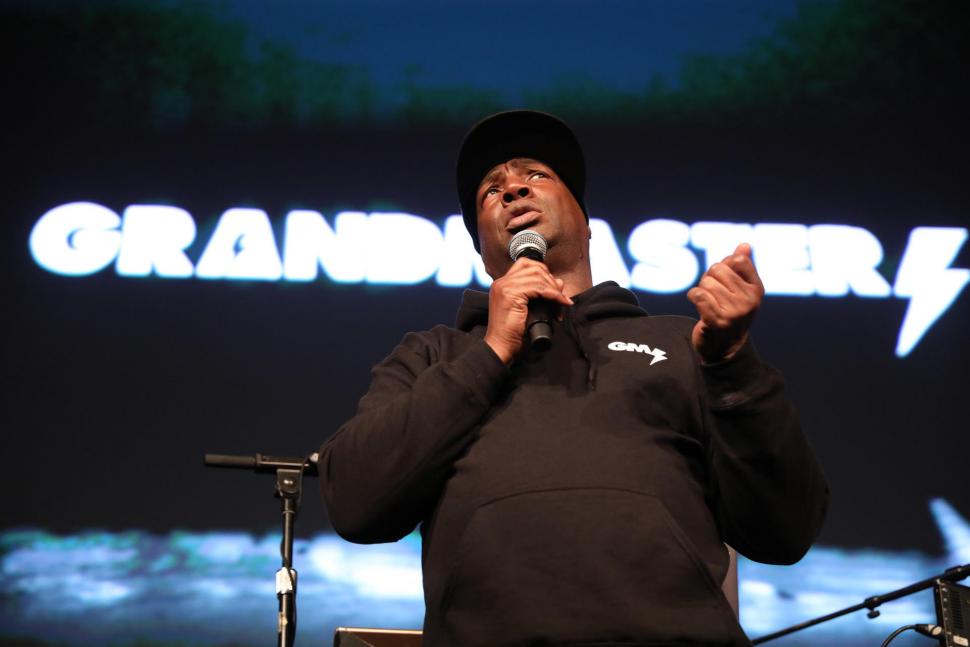
Freesia saw Flash live at the Berklee Performance Center in February 2020, where he talked about pioneering turntables into an instrument and the influence it had on rap music.
Freesia suggests practicing on vinyl turntables if you get the chance when you first start DJing because it’ll help you understand what the new technology is trying to achieve.
“I would recommend if someone wants to DJ, to invest in the electronic stuff, but also try to learn on real turntables,” she says. “All of the electronic digital stuff is based off of the design of the traditional old school technology and software. When you’re dealing with vinyls, it’s so smooth and intuitive.”
Understand Your Audience and Prepare
When you receive an inquiry about a gig, Freesia says the first step is to ask the client about the audience. How many people? What’s the age group? What kind of music are they looking for? This will help you decide if this is the right gig for you, and if it is, how to start preparing your set.
“I’m an open-format DJ, so I can play pretty comfortably across genres that are related to R&B, hip-hop, reggaeton, dancehall, Afrobeats, house, and a little bit of alternative electronic,” she says, “but I’m not a big EDM DJ. So if they were to say, ‘We’re looking for EDM,’ I would probably refer them to somebody else.”
Once you do start preparing, Freesia advises that you have enough music to feel confident, but not so much that you’re overwhelmed.
“I can feel that I’ve grown because even a couple years ago, I would just throw a bunch of songs in there and just be like, ‘Okay, I know I’m going to play 40 songs an hour, so here’s 400 songs,’” she says. “Now I’m a lot more meticulous. And for me, that’s rewarding because when I’m playing live the day-of, it allows me to really enjoy myself and feel prepared, and I can dance with and vibe with the audience without really having to work so hard to find the next song.”
Freesia developed a formula that helps her pare down her collection for the event.
“My guideline is really making sure that I’m putting together a set of songs I’m very likely to play,” she says. “So for example, if it’s a one-hour set, I might play anywhere from 20 to 40 songs an hour. To feel prepared, I’ll double that number. For example, if I average 30 songs an hour, so I’m going to double that number to 60.”
Practice DJing Like You Would Any Instrument
Just as you would dedicate time to learning guitar, piano, or drums, you can only get better the more that you practice. And while practicing doesn’t necessarily look like playing scales, it means creating playlists, discovering new artists, creating mixes, and pretending like you’re DJing for a crowd, smooth transitions and all, even if it’s just you.
“Develop your music, your palette, and start doing some research,” she says. “There are also a bunch of different DJ pools to download music from, and just start experimenting. Don’t overthink it. Just experiment and have some fun with it. That’s how you learn. You just have to practice.”

